Member of the Month: Rachel R. Hardeman
Selena Ortiz, Sara Curran, Muntasir Masum, Sung ParkRachel R. Hardeman is a tenured Associate Professor in the Division of Health Policy & Management at the University of Minnesota’s School of Public Health, the Blue Cross Endowed Professor in Health and Racial Equity, and the Founding Director of the Center for Antiracism Research for Health Equity. A reproductive health equity researcher, she applies the tools of population health science and health services research to elucidate a critical and complex determinant of health inequity—racism. Her work aims to link structural racism to health, identify opportunities for intervention, and dismantle the systems that allow inequities to persist.
You can follow Rachel on Twitter @RRHDr
Please share how your work relates to the issues and concerns that have emerged as a result of the COVID-19 pandemic.
My research focuses on advancing racial health equity, which means advancing the health, dignity, and opportunity for people I love most. As a Black woman, my family and my communities have been deeply and disproportionately impacted by COVID-19 due to structural racism.
We’d like to hear your thoughts and understandings about how COVID-19 has disproportionately impacted vulnerable communities, such as the homeless, undocumented, low-income, and racial/ethnic minority populations.
COVID has exacerbated health care inequities that have been prevalent for Black people and other people of color for generations.
I think what we wrote in our New England Journal of Medicine article Stolen Breaths sums it up quite clearly: “The truth is black people cannot breathe because we are currently battling at least two public health emergencies, and that is a conservative estimate. One of every 1850 black Americans have lost their lives in this global fight against a novel virus that could have harmed anyone (https://apmresearchlab.org) And yet — because of racism and the ways humans use it to hoard resources and power for some, while depriving others — it has killed an enormous number of black people.”
Current population health efforts are focused on vaccination efforts. Going forward, what population health investments and policies are necessary to best prepare for and prevent future public health catastrophes?
“Colorblind” approaches to vaccine roll-out have left Black communities and communities of color unprotected, leading to higher cases and deaths. In future crises, we can fix this by following models that take an antiracist approach to public health. For example, this year in Philadelphia 1000 people were vaccinated in a highly diverse urban apartment complex which houses the majority of seniors. Teams went door to door to administer vaccinations. Community members sat in the hallway outside their apartments as they waited. They brought the vaccine to an older marginalized community. Community-centered solutions like these come from centering the voices, knowledge, and solutions of Black and Brown people.
Tell us about your professional journey and how you ended up studying health services and health disparities?
I was born and raised in Minneapolis. I love my home, but I also saw from a young age that not everyone in this community is afforded the same opportunities to be healthy. Throughout middle school and high school, I spent many evenings and weekends going to hemodialysis appointments with my grandmother, who suffered from kidney failure. She experienced so much discrimination and indifference by her medical providers that she eventually decided to stop the treatment that was keeping her alive. At age 16, I lost my grandmother (she was only in her early 60s) because she was tired of dealing with a health care system that didn’t seem to care about her. This experience drew me to medicine. I earned an undergraduate degree in Chemistry and Spanish at the Xavier University of Louisiana–a Historically Black College in New Orleans. After graduation I attended La Escuela Latino Americana de Medicina (The Latin American School of Medicine) in Havana, Cuba. Living in New Orleans I saw stark disparities daily in education, health care, housing, and much more. While living in Cuba for two years, I saw the power of public health and its ability to prevent illness and the power that comes from viewing health as a human right rather than a privilege. I decided to earn an MPH so that I could be at the forefront of effecting change. At the time, 47 million people in the United States were uninsured and I was engaged in work that focused on closing racial disparities in access to care. But what we saw after the ACA was passed in 2010, was that disparities in health care delivery and health remained which told us it wasn’t solely an access issue. There were other factors going on…Understanding and applying critical race theory to health services research has allowed me to push the boundaries of what questions are typically asked which has created space for innovation and engagement in the dismantling of systems of oppression that have kept Black communities from the opportunity to thrive.
What is the general focus of your current research?
As a reproductive health equity researcher, my program of research applies the tools of population health science and health services research to elucidate a critical and complex determinant of health inequity—racism. I leverage the frameworks of critical race theory and reproductive justice to inform my equity-centered work which aims to build the empirical evidence of racism’s impact on health particularly for Black women and girls. I also aim to develop tools and activities to support community members, students, researchers, and policymakers, including infrastructure for community-led research methods, a flagship course on structural racism and health inequities, and a data repository that will allow others to measure and examine the linkage between structural racism and health.
Can you summarize for us something you’ve been working on recently?
This summer I’ve been engaged in launching the Center for Antiracism Research for Health Equity at the University of Minnesota School of Public Health. Additionally, I am focused on work related to the measurement and operationalization of structural racism and working with students in my research lab: Measuring and Operationalizing Racism for health Equity (MORhE Lab) I’ve also recently launched a newly funded R01 that will focus on studying the population health level impacts of police violence on reproductive health outcomes.
How is interdisciplinary work necessary for the topics you study?
America’s institutions were built on white supremacy, causing Black, Brown, and Indigenous people to face systemic disadvantages in access to resources, services, and opportunities. Systemic racism affects where Blacks live, work, learn, and worship. It affects what food they have access to, what doctors they are able to see, how they are treated in society and the justice system, and whether they are able to gain positions of political power. These disadvantages build up over the course of a Black person’s life, creating health disparities.
No single person in any single field can dismantle these tangled, intersecting systems of systemic racism. We need interdisciplinary work and collaboration with Black, Brown, and Indigenous communities to create lasting antiracist change.
Why did you decide to become a member of IAPHS, and how does IAPHS help you to advance the work that you do?
Population health science is one of the tools we need to confront structural racism. There is so much urgency in the work of antiracism, and we need the interdisciplinary, collaborative, and data-driven expertise of the IAPHS to dismantle white supremacist structures. I love the cross section of scholars that attend the IAPHS annual meeting and have found so many awesome connections thanks to IAPHS!
We’d love to hear more about your personal interests! Favorite population health relevant academic/news/article(s)?
Over the past year I’ve really appreciated anything written by Dr. Rhea Boyd!
Favorite musician?
Lizzo! 👸🏿
Favorite book?
Song of Solomon, Toni Morrison
Hobbies?
Peloton! 🚲
Power and Olympic weight lifting
Traveling Nationally and Internationally (pre-Covid)
Dance parties with my 8 year old daughter
Trying new restaurants with my husband, twin sister and brother-in-law (pre-Covid)

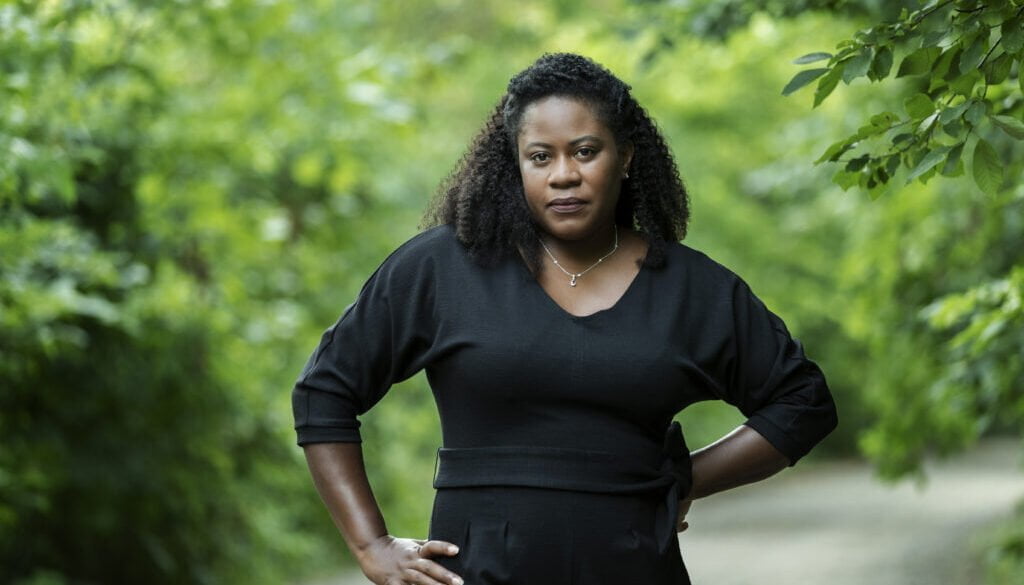
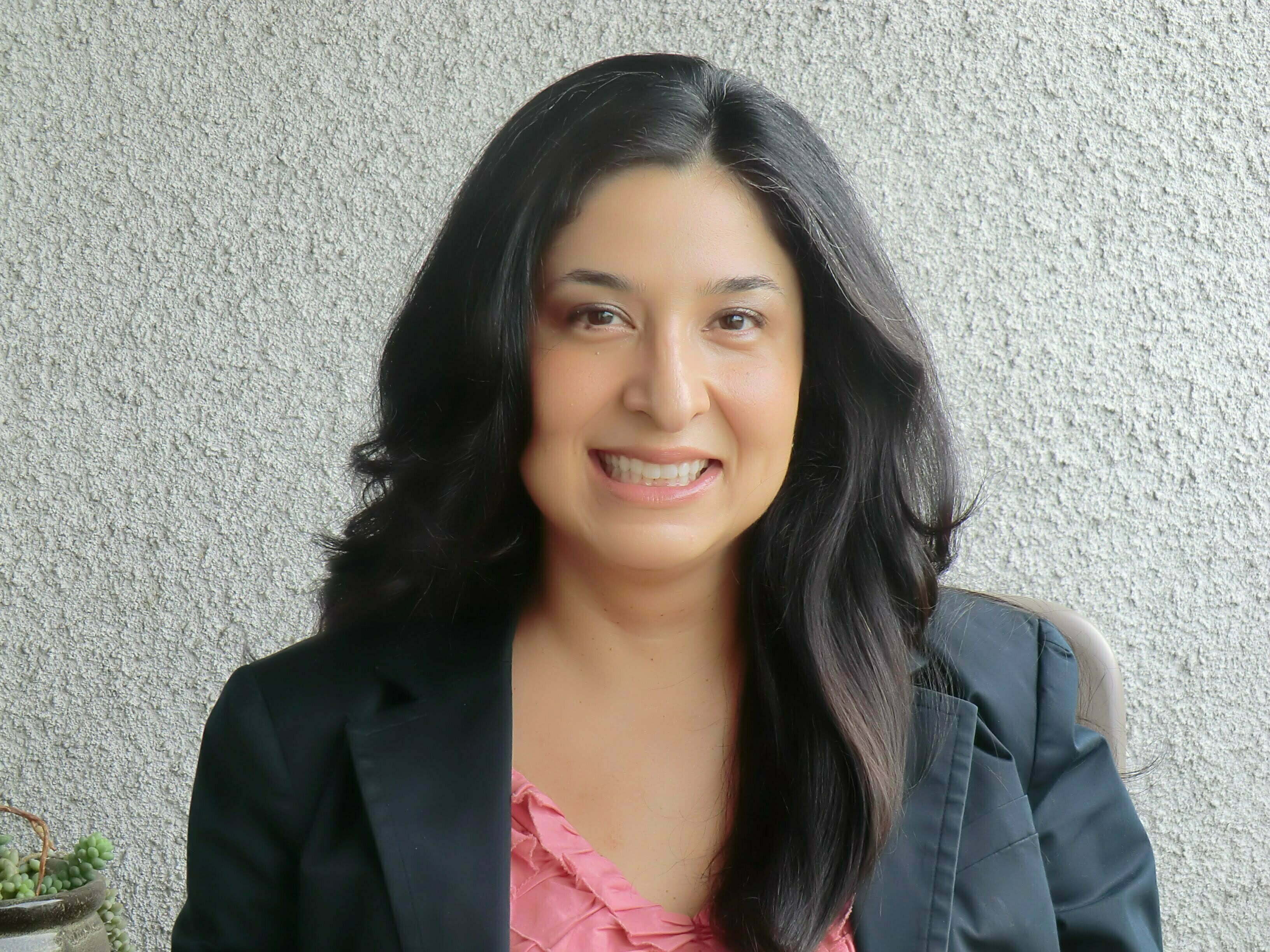
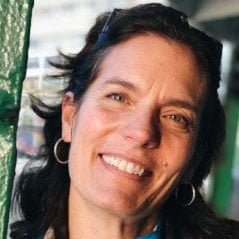
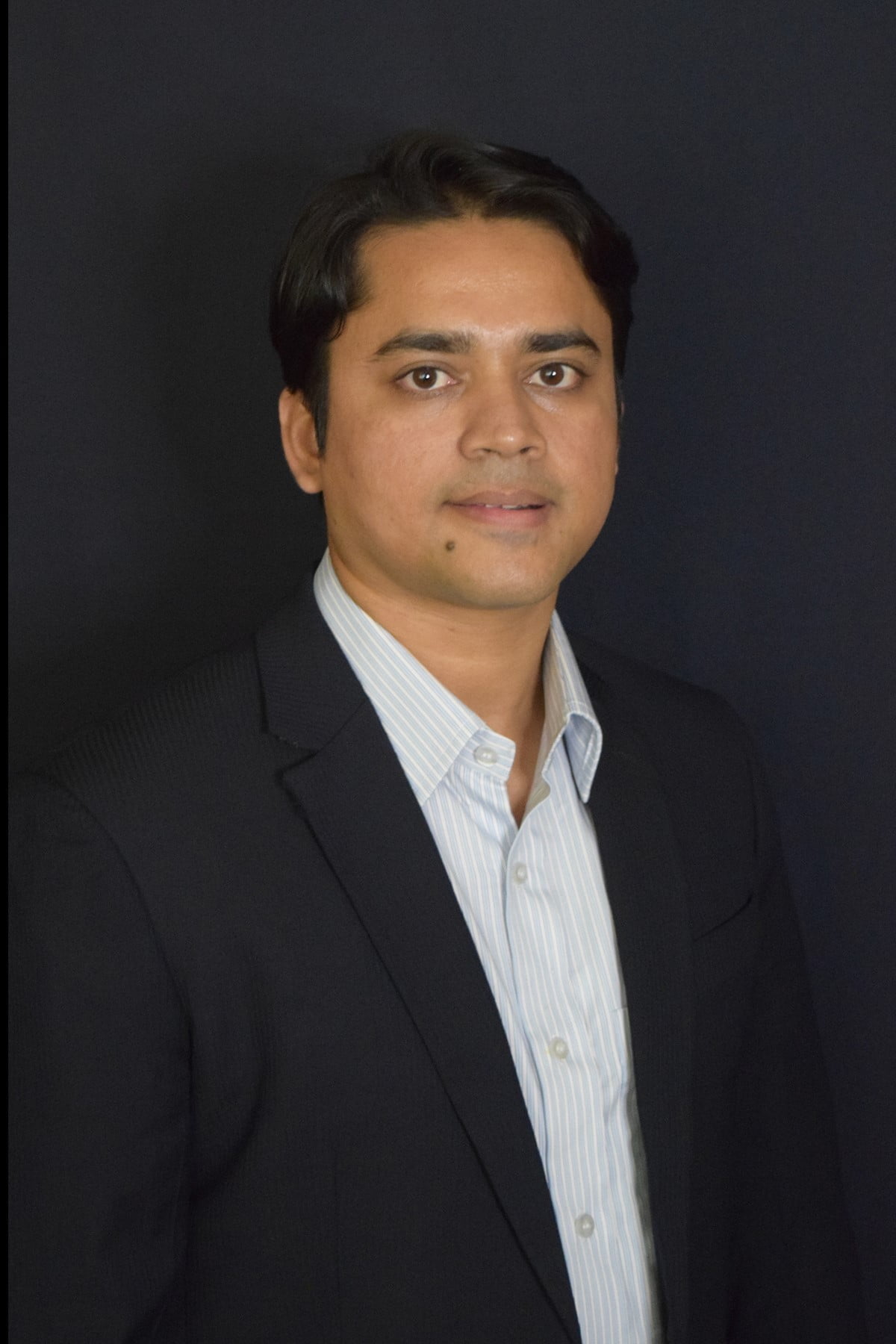
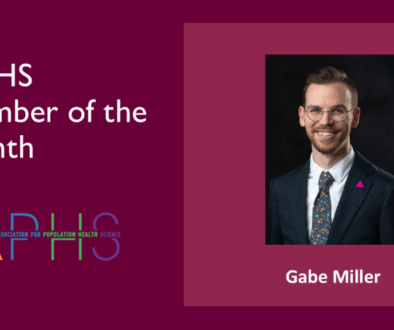
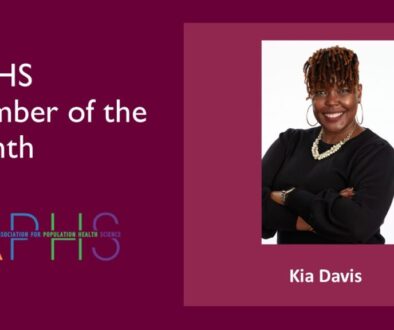

All comments will be reviewed and posted if substantive and of general interest to IAPHS readers.